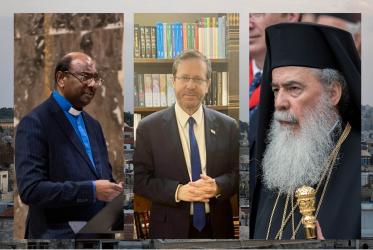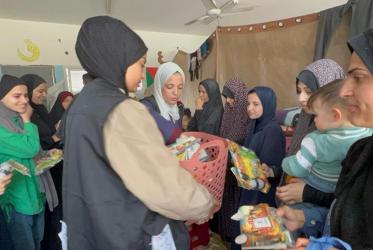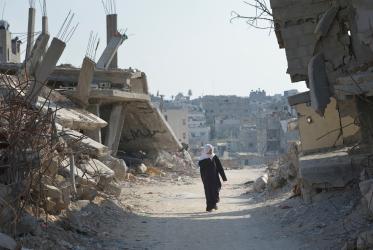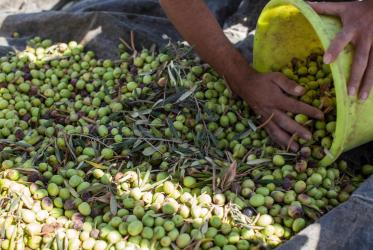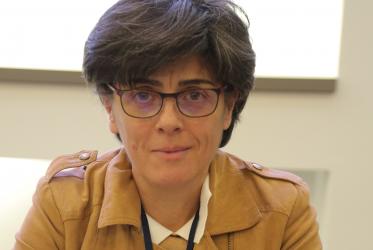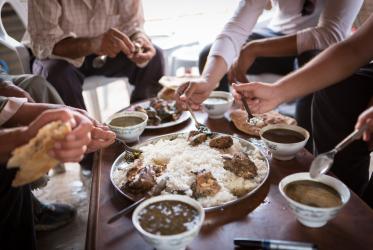Displaying 1 - 20 of 38
03 April 2024
Words of steadfastness ring from the rubble
21 March 2024
WCC calls for immediate end to brutal violence in Gaza
30 December 2023
Displaced people south of Gaza face extreme difficulty
21 December 2023
Migrants in Argentina find listening ears and open hearts
04 November 2022
In Lebanon, “without peace there is no justice”
21 July 2021
Hope prevails in times of crisis in Lebanon
14 September 2020


